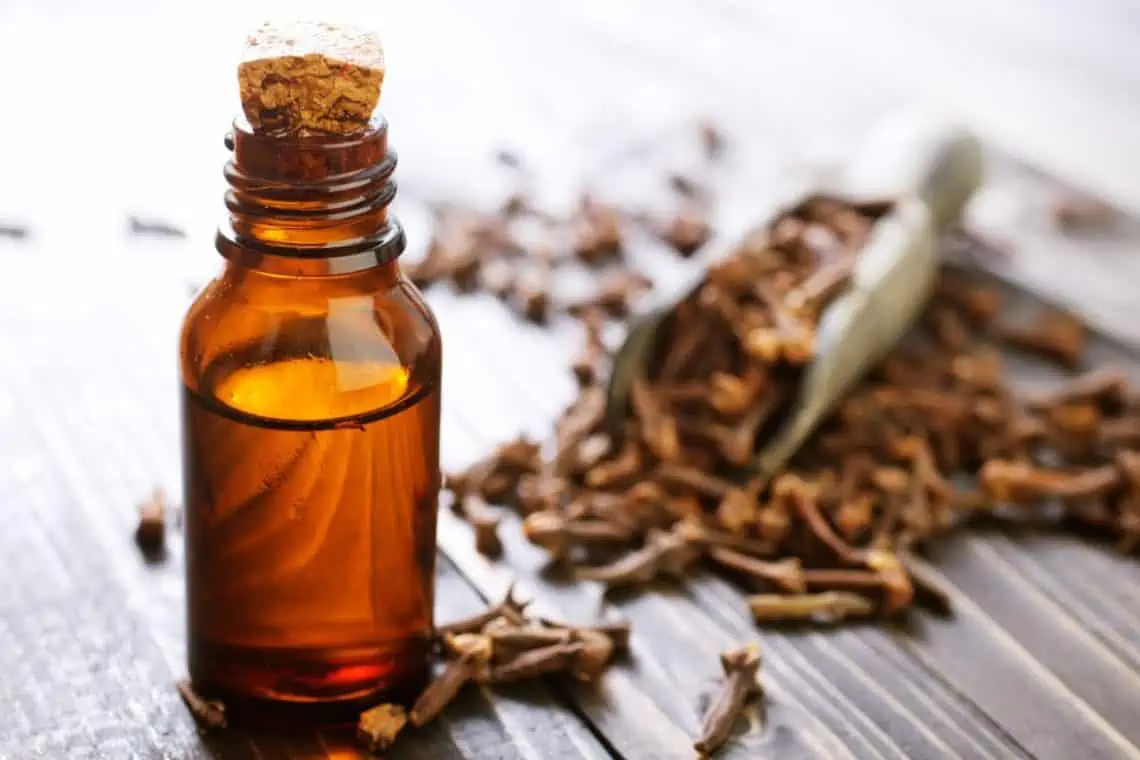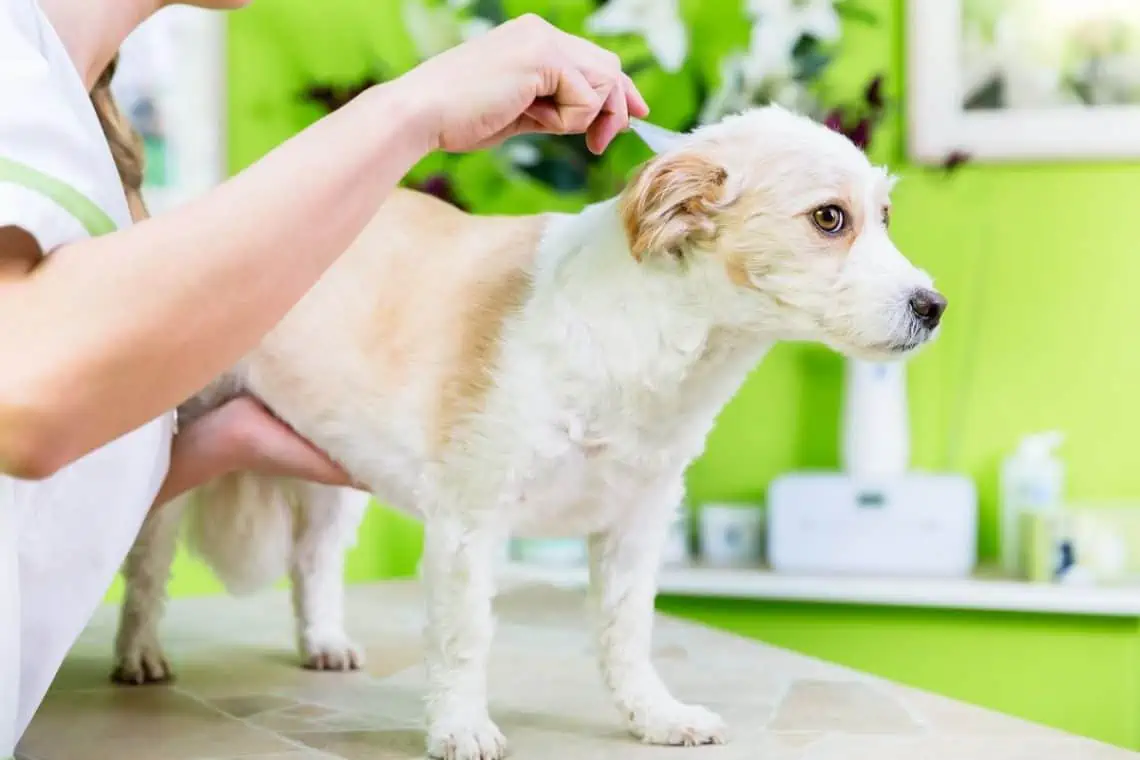Pet owners might have heard that clove oil can be an effective way to kill fleas and avoid having to use toxic chemicals, but is it true?
Let’s dive into the world of natural remedies for flea control and find out if clove essential oil is a good idea and the answer to our flea problems!
Clove Oil: The Flea Killer?
Clove oil contains a compound called eugenol, which has been found to be toxic to fleas. In fact, studies have shown that eugenol can effectively kill adult fleas, eggs, and larvae within a short period of time[^1^].
So yes, clove oil does have the potential to kill fleas and act as a natural flea repellent.
Applying Clove Oil for Maximum Results
When using clove oil to treat fleas, it’s crucial to dilute it with a carrier oil, such as coconut oil or olive oil, before applying it to your pet’s skin. Undiluted essential oils, including clove oil can cause skin irritation in both pets and humans.

To create a safe and effective flea treatment, mix 1-2 drops of clove oil with a tablespoon of carrier oil and gently massage it into your pet’s fur, focusing on areas where fleas are most likely to hide (like the neck and base of the tail).
Remember that essential oils are for topical use on your dog’s coat or dog’s skin only and should never be ingested.
Benefits and Drawbacks of Using Clove Oil
There are several benefits to using clove oil for flea control:
- Natural and eco-friendly: Clove oil is a natural alternative to chemical flea treatments like flea collars, making it a more environmentally friendly option.
- Avoiding harsh chemicals is a great way to keep health issues at bay.
- Kills all life stages of fleas: As mentioned earlier, clove oil is effective against adult fleas, eggs, and larvae.
However, there are some drawbacks to consider:
- Potential skin irritation as an adverse reaction: As stated above, undiluted clove oil can cause skin irritation, so it’s essential to dilute it properly before use.
- Not suitable for cats: Clove oil is toxic to cats, so it should not be used as a flea treatment for cats [^2^].
Alternative Flea Prevention Options
Fleas can be a nuisance for both you and your dog. Preventing flea infestations is much easier than dealing with an existing one. Here’s a comprehensive plan to help you keep fleas at bay using holistic methods.
Step 1: Regular Grooming of Your Dog
Grooming your dog regularly not only keeps their coat clean and healthy but also helps in early detection of fleas. Use a flea comb to brush your dog’s fur and check for any signs of fleas, flea eggs, or flea dirt.

Bathe your dog with a gentle, natural shampoo that contains some favorite essential oils for flea control products. Some of the best essential oils to treat a flea infestation are peppermint oil, lavender essential oil, lemongrass oil, or cedarwood oil.
Step 2: Boost Your Dog’s Immune System
A strong immune system can help your dog resist fleas and other pests. Feed your dog a balanced, high-quality diet, and consider adding supplements like omega-3 fatty acids and probiotics to support their overall health.
Step 3: Keep Your Home Clean
Maintaining a clean home is crucial for flea prevention. Vacuum your carpets, upholstery, and pet bedding regularly to remove any flea eggs or larvae. Wash your pet’s bedding and toys in hot water weekly to kill any potential fleas or eggs.
Step 4: Keep Your Yard Clean
Fleas thrive in damp, shady areas. Mow your lawn regularly and clear away any potential hiding spots or infested areas like piles of leaves or debris. Consider using a natural flea repellent for your yard (like Diatomaceous Earth) to keep fleas away.
Step 5: Use Diatomaceous Earth (DE)
Food-grade diatomaceous earth is a natural, non-toxic powder that is widely used as a natural insect repellent and can help control fleas in your home. Use it as a topical application by sprinkling DE on carpets, pet bedding, and other areas where fleas might hide. Leave it for a few hours or overnight, then vacuum it up. Repeat this process every few weeks to keep fleas at bay.
In conclusion, clove oil can effectively kill fleas, but it’s essential to use it properly and with caution. Always dilute clove oil and never ever use it on cats. Remember, there are alternative natural flea control methods available if you decide that clove oil isn’t the right choice for you and your pets.
Footnotes:
[^1^]: Sharma, S., & Deepak, B. (2011). Efficacy of two essential oils against fleas. Journal of Environmental Biology, 32(4), 453-455.
[^2^]: Bischoff, K., & Guale, F. (1998). Australian tea tree (Melaleuca alternifolia) oil poisoning in three purebred cats. Journal of Veterinary Diagnostic Investigation, 10(2), 208-210.